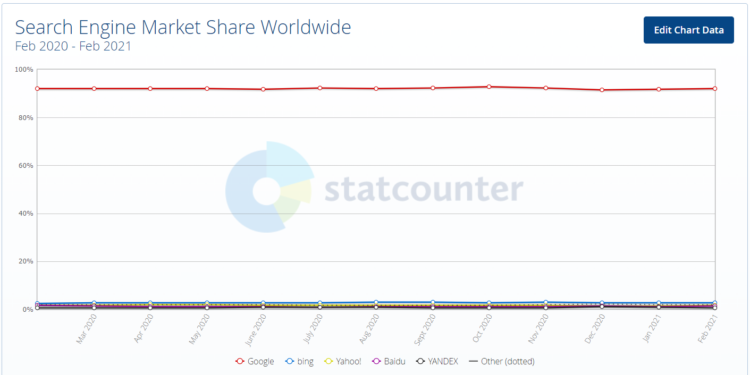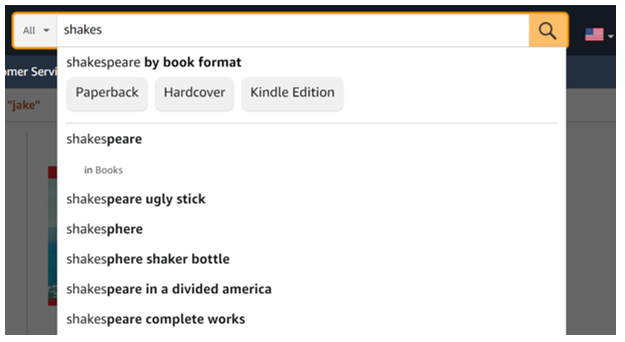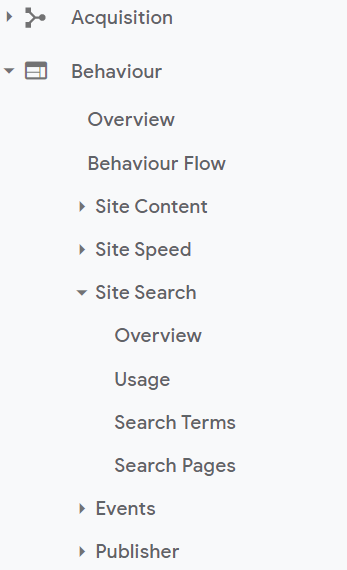How to Improve Your E-Commerce Site Search?

When browsing through online store offers, you can select from hundreds or thousands of products. Even if the menu is extremely user-friendly which makes it easier to access every category and subcategory, finding the exact item may be time-consuming and challenging. That’s why an e-commerce site search is a real must. Why is it so important? How does it work and what characterizes quality site search? Keep reading!
Table of contents:
- Site Search – What Is It For?
- Internal E-commerce Site Search
- E-commerce Site Search vs. SEO
- Take Care of Your E-commerce Site Search
Site Search – What Is It For?
We’re sure that at least once in your life you walked through hypermarket alleys wondering where to find the necessary product. Very frequently, the only solution was to ask a shop assistant for directions. Maybe then you were thinking that an online site search would be an equally excellent solution in regular shops. You would just need to type in the name of the product and the necessary information about its location would display automatically. Surely, in the future, this solution will be adopted in every sizable store. After all, self-checkouts and engines already facilitate the process of searching for products. However, this system isn’t as complex as the online one.
Site searches are used not only in huge online stores but also in information services and portals where it’s difficult to access the necessary item or content without this solution. How does it work? In the simplest scenario, it’s enough to enter the item you’re looking for into the site search and then you receive a list of goods matching your query.
When discussing such solutions, it’s necessary to mention Google and its success. Take a look at the chart below. Just to put you in the picture, as many as 92% of Internet users choose this search engine. Google gained an advantage over its market rivals thanks to the approachability and quality of obtained results. In a nutshell, with Google, you can easily find everything you’re looking for. It enables selecting the time frame when given content was published, you can search only for videos or images and benefit from voice search. Because of all these reasons, Google has been enjoying great popularity among Internet users for years.
Interestingly, numerous websites offer site searches that redirect users to Google search results. But, even if a given page doesn’t offer such a solution, it doesn’t mean that you need to browse through thousands of subpages to access the content you wish. It’s full enough to use appropriate search operators.
Take a look at the screenshot below to see an exemplary query:
Fun fact, this method of searching frequently turns out to be more effective and efficient than the use of solutions available on the site. However, it’s crucial to remember that benefiting from functionalities offered by Google means that you browse solely the subpages indexed by the search engine, not all the content available on the platform.
Internal E-Commerce Site Search
If an internal e-commerce site search is developed properly, it’ll help you easily find everything you need. Below you can find a list of the greatest benefits of an online store site search:
- It makes it easier to access products and content.
- It enables the analysis of searched phrases and offers suitable products to Internet users.
- It displays related products after entering several characters.
These are only some of the functionalities offered by this solution. However, before talking about prospective advantages, it’s necessary to ensure that the tool is designed properly.
Effective E-commerce Site Search
An underdeveloped site search can be an effective way to deter potential customers interested in your offer. Imagine that you enter an online store website and you aren’t able to find the search bar or that the site search doesn’t provide any results. In such a situation, you’d probably resign from shopping and select another, trouble-free store instead. Discover the features of an effective and professional e-commerce site search:
- Dealing with typos and spelling mistakes – if you check Google Search Console for phrases that led visitors to your online store, you’ll notice how many of them were written or formulated incorrectly. Nevertheless, users still entered your website as Google managed to cope with the incorrectly worded query. An ideal e-commerce site search should work the same way. Take a look at the results for the query “jaket”. The site search met the expectations and provided appropriate results.
And now it’s time for a less optimistic scenario. This store didn’t find any products corresponding to the incorrect search query. As a result, potential customers may decide to leave the website.
For Google, such queries are a piece of cake. It displays the results without the mistake but it also gives an opportunity to search for a phrase with the mistake.
- Autocomplete – frequently people search for products but don’t remember their exact names. That’s when autocomplete comes in handy. It’s enough to start typing the first letters of the phrase you’re looking for and the site search will give you some hints. pl is a great example as this online store displays suggested products and categories a given item belongs to.
- Result filtering – once you click “search”, the results should appear ASAP and you should have the opportunity to filter them to make finding the exact thing you’re looking for easier. After entering a selected phrase, a store with quality site search ought to provide categories the products in the phrase may belong to. Filtering is another solution – it makes it possible to sort the product range alphabetically, by launch date or by price. It’s particularly helpful if you aren’t entirely sure what to buy.
Result filtering definitely makes it easier to search for necessary items. When you browse through the “TV sets” category in one of the sizable online stores, you’ll see even hundreds of products to choose from. However, you can always benefit from filtering. Select the maximal price, preferred brand, and other parameters to check out only these products that meet your expectations. It’s pointless to waste time reading descriptions of dozens of TV sets.
- Synonym support – a good site search should work properly in case a given user decides to search for a product using its synonyms. For example, the X-kom.pl store also offers “laptops” if you type in “notebooks”. At the same time, this site search displays recommended products.
- No blank results – if there are no products corresponding to customers’ needs, there should never be only a blank search page displayed. For example, you can show the users products that may be of interest to them.
- Automatic product redirects – this is an extremely interesting solution. You’ll immediately access a subpage with a given product if it’s the only item corresponding to the query. This shortens the process of searching.
- Visibility – it’s not a good sign if users have problems with finding the site search. Make sure that your online store displays this element properly, regardless of the used device. The site search should be located in the upper part of the website. Placing it somewhere else may irritate visitors and discourage them from browsing the site. It’s also a good idea to provide special hints suggesting what’s the purpose of the site search.
E-Commerce Site Search vs. SEO
When designing your e-commerce site search, you should also take into account various SEO issues such as:
- Blocking search indexing – these search results are automatically generated content that brings no value to the users. Although this content is collected from the site, it’s presented in a completely different form and it shouldn’t be indexed as this may increase internal duplicate content. Moreover, indexing such pages may also have a negative impact on your crawl budget as Google may focus on indexing useless subpages, and consequently, it may not access content that’s much more important for your store.
- Using phrases typed in by potential customers – if your site search is developed properly, you can use Google Analytics to check phrases typed in by users. After logging in to your GA account, select “behaviors” and “site search” to access this information.
However, to obtain any data, first, you need to configure the report. It takes only a few minutes. Then, GA will be saving information about the phrases entered into the site search by visitors and their subsequent steps and behaviors.
This is a source of valuable knowledge – perhaps some Internet users were looking for specific content or products on your website but they weren’t able to find them and decided to leave the site. Thanks to it, you can determine what type of blog content you need and which products should be introduced to your offer. It’s a perfect way to minimize situations when potential customers leave your store because they aren’t able to find what they’re looking for.
What to do to obtain such data? Go to GA, select “administration” and enable the “site search tracking” option. Then, you’ll need to enter the search parameter. How? Use your e-commerce site search and see what the address of the page with the search results looks like.
The letter or word between “?” and “=” (“s” in this case) is the search parameter. It may be “query”, “search” or others. If it’s also an “s” for you, then add this letter in the appropriate field. Click “save” and wait a few hours. Later, you’ll be able to obtain the first pieces of information, provided somebody uses your e-commerce site search.
Take Care of Your E-Commerce Site Search!
A properly developed e-commerce site search can bring numerous benefits to your business. On the other hand, an element that doesn’t work properly may deter users from shopping in your store. A well-thought-out and the implemented solution is a valuable source of knowledge about the behavior of Internet users who visit your store.













Site search is a live saver right now, I can’t imagine using (or buying from) a website with a poor search engine within. I do too many typos 😀
Ecommerce site search is a search engine solution you can integrate into your ecommerce store. At its most basic, it helps users find the exact products they’re looking on your ecommerce website for by matching keywords. But it can — and should — do a lot more than that.